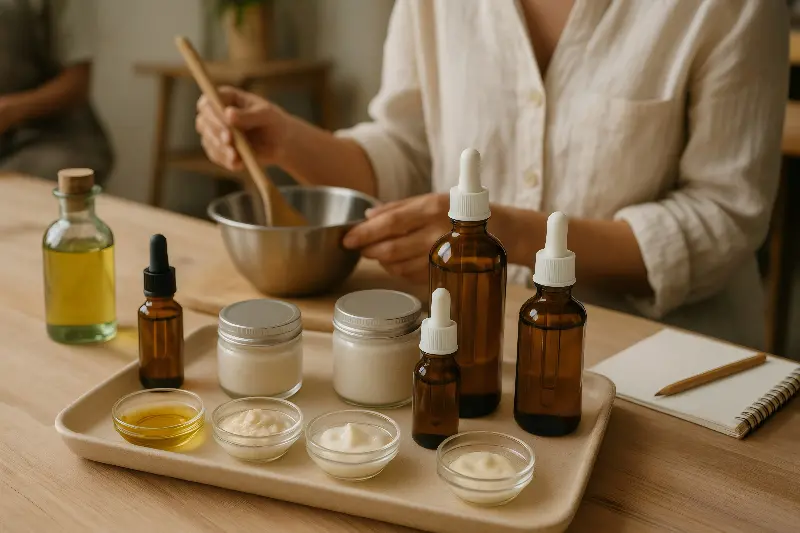Dry, rough, or flaky skin can make even the most confident among us feel less than our best. Lucky for you, the world of skincare is overflowing with ways to moisturize deeply, soften your skin, and create that coveted healthy glow. Whether you’re struggling with seasonal dryness, naturally parched skin, or simply craving velvety smoothness, understanding the best moisturizing remedies can make all the difference. From science-backed skincare tips to time-honored home remedies, let’s uncover how you can reveal your softest skin ever.

Understanding The Causes Of Dry Skin
Dry skin doesn’t discriminate—it can affect men and women of all ages, and its causes are as diverse as its symptoms. Cold weather, low humidity, harsh soaps, and hot showers often top the list as environmental culprits, stripping the skin of its natural oils. Age also plays a role; skin loses its ability to retain moisture as we get older, leading to fine lines and rough patches. Even genetics and diet can influence how soft or dry your skin feels.
The key to achieving soft skin is identifying the root causes of your dryness and addressing them with the right moisturizing tactics. And, remember: moisture isn’t just about slathering on a random cream. It’s about supporting your skin with gentle care, nourishing ingredients, and smart daily habits.
Ingredients That Transform Your Skin
The best moisturizing remedies often come down to what’s inside your skincare products. Some ingredients are true dermatological heroes when it comes to rescuing dry skin.
Hyaluronic acid is one such heavyweight. This naturally-occurring molecule can hold up to 1,000 times its weight in water, meaning it acts like a sponge for your skin, drawing in and locking down precious moisture. Glycerin is another time-tested ingredient, famous for its ability to attract water and keep skin plush.
Ceramides deserve their own moment in the spotlight. These lipid molecules make up your skin’s natural barrier and are essential for keeping hydration where it belongs. Look for products rich in ceramides, especially if you find your skin getting rough and tight after cleansing.
Natural oils can also be highly effective, and they’re a favorite for both their efficacy and sensory appeal. Argan oil, jojoba oil, and squalane mimic the skin’s natural sebum and are absorbed easily without leaving a greasy feeling. Shea butter, loaded with vitamins and fatty acids, is perfect for quenching very dry patches or restoring softness overnight.
If you’re scanning ingredient lists, avoid heavy fragrances, alcohols, and harsh exfoliants, as these can strip the skin and worsen dryness.

Smart Daily Habits For Maximum Moisture
Aside from what you slather on, the way you treat your skin every day can have a huge impact on its softness. Start your day by cleansing with a gentle, sulfate-free face wash or an oil-based cleanser. Harsh soaps are often the hidden villains behind tight, uncomfortable skin.
Pat your skin dry—not rub—after washing, and apply your moisturizer while your skin is still damp. This locks in twice the hydration compared to dry skin application. Layering your products also matters: use lightweight serums with hyaluronic acid first, then follow with a cream or oil-based moisturizer to seal everything in.
Don’t forget your body—after all, soft skin isn’t just for faces! After a shower, use a deeply moisturizing body lotion, paying extra attention to knees, elbows, and shins, which tend to dry out quickly.
At night, consider switching to a richer cream or sleeping mask. Overnight, your skin naturally regenerates and loses more water, so this is the perfect time to repair your moisture barrier.
Boosting Hydration From The Inside Out
While topical remedies reign supreme, what you put into your body can amplify their effects. Nutritional science shows that omega-3 fatty acids, found in fatty fish, walnuts, and flaxseeds, help maintain your skin’s lipid barrier, keeping it softer and more resilient.
Hydration is critical as well. While the “eight glasses a day” rule may be a myth for some, most people benefit from drinking enough water to support healthy skin function. Look out for hydrating foods too—cucumber, watermelon, and oranges can contribute to your skin’s hydration from within.
Limit caffeine and alcohol, as these can dehydrate your skin over time. If you love your latte, try to balance it with an extra glass of water.
